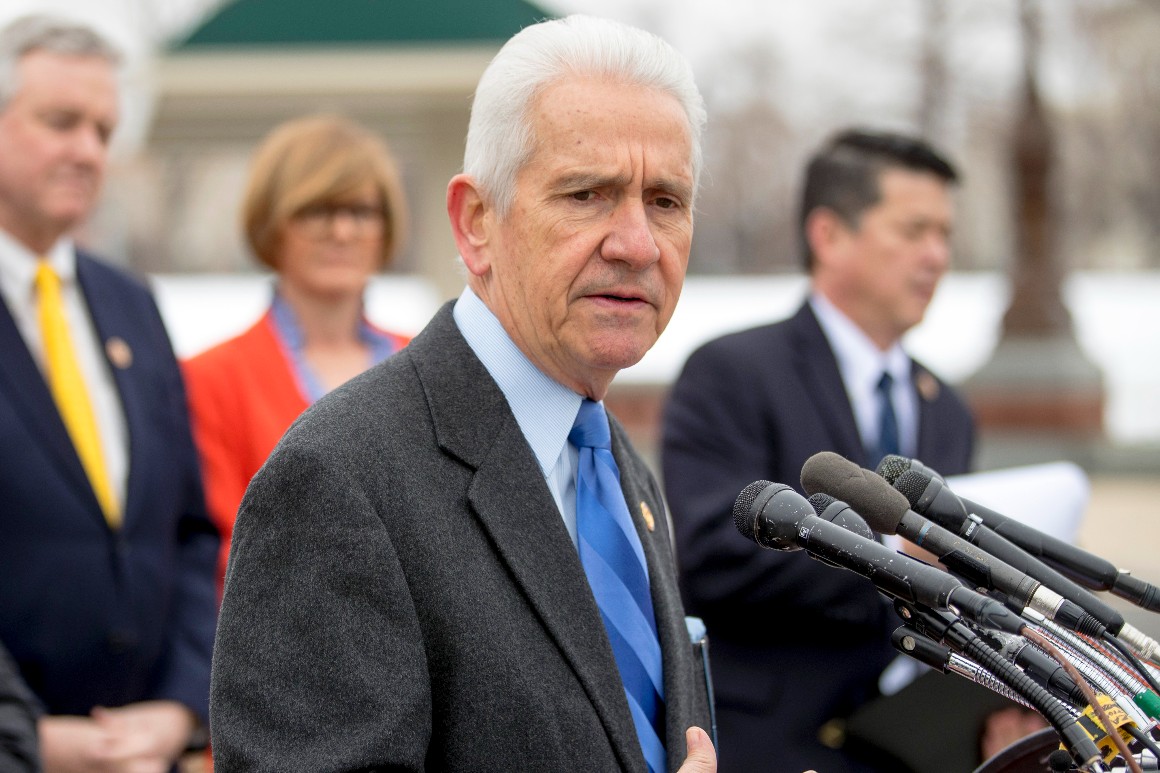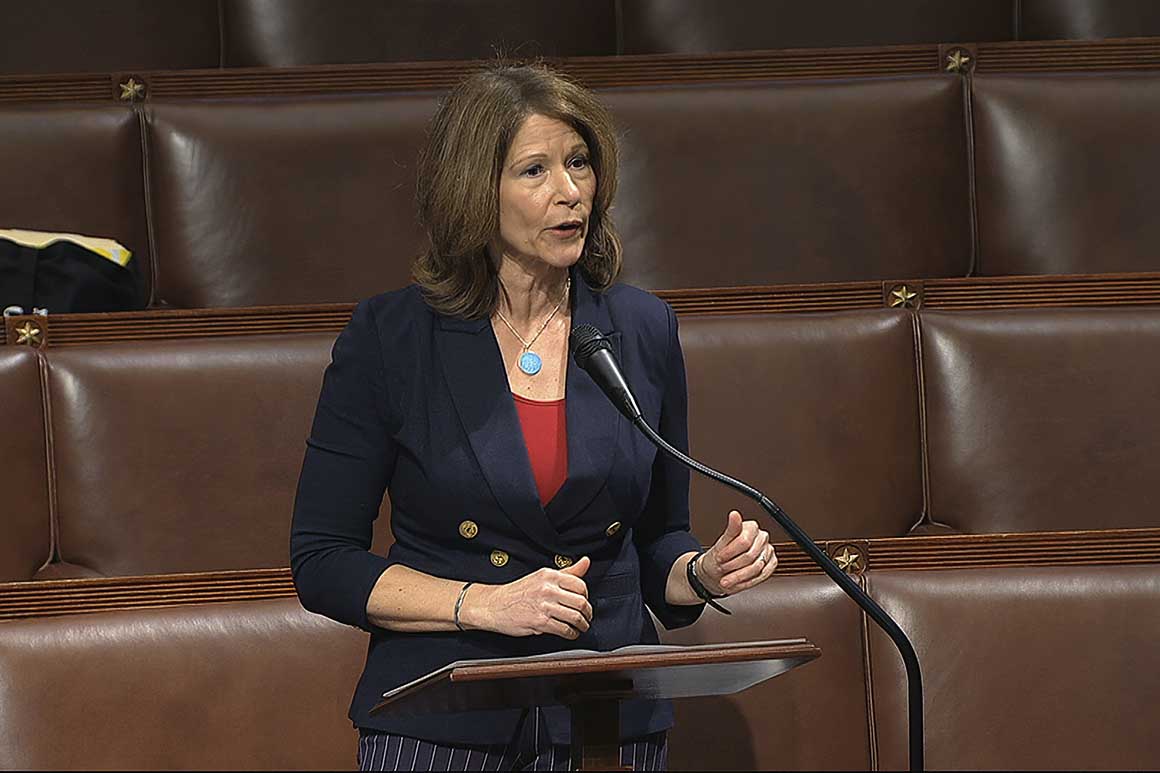
Democrats on the House Agriculture Committee are eager to bolster money for climate and disaster relief in farm bill talks next year after extreme weather devastated farms across large swaths of the country.
It might be one of their best chances to significantly increase funding for agriculture-related climate programs after Sen. Joe Manchin (D-W.Va.) said he won’t vote for the current version of Democrats’ $1.7 trillion climate and social spending package.
Farm bill negotiations typically take two years or more, and Democrats are hoping their early bid to shape talks around their climate and other major priorities will ensure they get at least some of what they want even if Republicans win a majority in the House next fall. House Agriculture Chair David Scott (D-Ga.) plans to initiate farm bill negotiations in the coming weeks since the current bill expires in 2023.
“Our focus has to be on making the funding for climate change solutions user-friendly and agri-friendly,” Rep. Jim Costa (D-Calif.) said in an interview.
The farm bill, which is reauthorized every five years, touches nearly everything across the agricultural sector and rural economies. It funds programs spanning farm subsidies to food assistance and rural jobs programs. Strengthening the bill’s climate provisions would cement the Agriculture Department as a central player in government efforts to curb greenhouse gas emissions for years to come.
Democrats are aiming to secure support from agricultural groups that could then press Republicans to pay for farmer-friendly climate programs if the GOP takes control before the deadline.
“I think this will be the first time we see some pretty impactful policies related to climate change,” Rep. Ann Kuster (D-N.H.) said.
But Republicans have bristled at the Biden administration’s move to have USDA take a big role in fighting climate change, largely through programs that provide direct payments and grants to farmers to voluntarily adopt greener practices.
Rep. G.T. Thompson (R-Pa.), the ranking member on the House Agriculture Committee, is poised to lead the panel if Republicans flip the House, giving him more power to decide what makes it into the final bill. In an interview, Thompson was noncommittal about Democrats’ interest in scaling up voluntary conservation and forestry programs.
“I don't think anyone can determine whether that's appropriate or not without going through a transparent process on the farm bill,” Thompson said.
Thompson, who supports addressing climate change through the agriculture sector, argued some of the climate money in Democrats’ spending package went to “flawed policies” and was “thrown in” without much oversight. Providing more oversight for existing farm bill programs is also one of his main goals for the upcoming talks.
Democrats aren’t convinced Republicans would be able to rapidly scale down their plans on contentious issues like climate and nutrition assistance, over which Democrats and Republicans have previously, and bitterly, clashed. About $10 billion in child food aid is stalled in Democrats’ spending bill.
If Democrats can hang onto control of the Senate, one House Democratic aide argued that any Republican effort to slash climate or nutrition funding is “going to be D.O.A.” If Democrats lose both the House and Senate, that would force President Joe Biden to decide whether he would sign or veto the final legislation.
“The last two farm bills ended up in some pretty partisan disagreements. So it's not uncommon that we start off with some sort of gap about how we're thinking about it,” Rep. Chellie Pingree (D-Maine) said, referring to conservation programs for farmers.
Disaster Relief
Lawmakers also acknowledge they will need to address how Congress funds disaster relief as extreme weather becomes more frequent and widespread. This year, lawmakers requested and Congress approved separate, immediate disaster relief for Western states and other regions hit by extreme weather. Requesting aid outside the farm bill is often quicker, but some lawmakers worry it undercuts the farm bill’s authority.
“I think there's going to be a debate about if there is a way that we can tweak the existing programs so that ad hoc relief is not necessary to quite the same extent,” said Rep. Dusty Johnson (R-S.D.).
USDA officials are also eager to overhaul disaster relief funding within the farm bill. Robert Bonnie, USDA undersecretary for farm production and conservation, said during a recent trip to drought-stricken Oregon that he’s hoping there’s an opportunity for “a conversation going into the next farm bill about [disaster relief] and how we make sure programs work as intended.”
Federally subsidized crop insurance is one key area some lawmakers are looking to beef up after extreme weather led to widespread crop losses across major parts of the West, upper Midwest and South. Producers pay into the program and can file claims if they experience significant crop damage or loss that year.
Rep. Cheri Bustos (D-Ill.), who chairs the House Agriculture subcommittee on farm commodities and risk management, said she’s looking for more ways to get producers involved with crop insurance, “as weather anomaly after weather anomaly is now becoming weather norms.”

In 2020, only 14 percent of all farms participated in federal crop insurance, according to new data from USDA’s Economic Research Service.
“We've got to get risk management right,” Bustos said. “That will be critical.”
Bustos plans to retire in 2023, when Republicans are on track to flip the chamber and take over leading the committee as well as the farm bill talks.
Inflation concerns
Lawmakers will also have to decide how much in federal subsidies they provide to farmers and ranchers after 2021 farm incomes jumped significantly, according to a recent USDA forecast.
Gains in commodity prices have pushed estimated farm incomes to their highest levels in close to a decade. The agency now estimates 2021 net farm incomes will hit $116.8 billion this year, up a stunning 23 percent from 2020.
That jump, along with a significant decrease in the amount of federal subsidies in 2020, could bolster arguments to pull back farm bill spending.
Some Republicans, like Sen. Mike Braun of Indiana, are especially interested in cutting back the farm bill as Democrats’ climate and social spending bill hangs in the balance.
“I think it puts in jeopardy any of the other normal appropriations,” Braun said.
But despite the significant jump in farm incomes, many lawmakers on the Agriculture committees said they are wary of slashing federal assistance amid the pandemic that has led to major disruptions across the industry.
“You have to look beyond the ebbs and flows of the very cyclical commodity prices and not get distracted by that,” Sen. Tina Smith (D-Minn.) said.
Sen. John Boozman (R-Ark.), the ranking member on the Senate Agriculture Committee, said he’s hesitant to pull back on federal subsidies as rising inflation and supply chain bottlenecks continue to strain producers.
Boozman will remain a key player in upcoming farm bill talks, which he’s argued Democrats have “undermined” by pushing their now-stalled spending bill. If Republicans flip the chamber in the midterms and if Boozman defeats a primary challenger, he could take over the Senate Ag Committee’s top spot when lawmakers begin writing the bill in early 2023.
“When you look at the price of fertilizer, when you look at the price of diesel and all these kinds of things, I think we're going to see significant increases next year also,” Boozman said.
----------------------------------------
By: Meredith Lee
Title: Democrats seek to shape climate and disaster relief in early farm bill talks
Sourced From: www.politico.com/news/2021/12/28/climate-disaster-relief-farm-bill-democrats-526183
Published Date: Tue, 28 Dec 2021 04:30:57 EST
Did you miss our previous article...
https://consumernewsnetwork.com/politics-us/sister-megan-rice-a-catholic-activist-who-saw-nuclear-weapons-as-a-social-injustice






